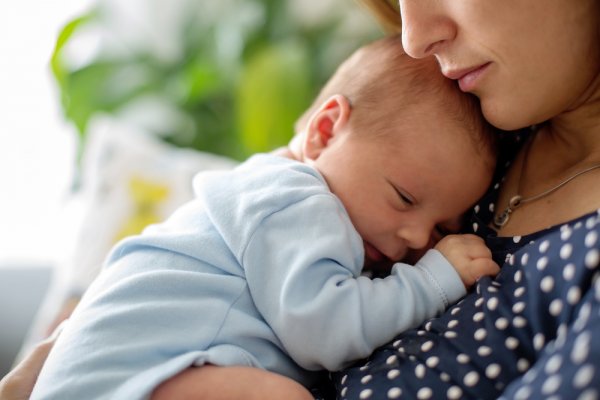In many gender equality debates, there is an ongoing polarisation of the ‘good mother’ versus the ‘good worker’. On the conservative side of the debate, mothers who engage in paid work are viewed as bad parents whose children will suffer from the loss of motherly support. On the ‘progressive’ side, women are considered responsible for achieving gender equality by working full time and contributing to the economy. In this context, the focus is solely on the economic benefits and motherhood is not factored in the debate. Both approaches end up blaming women for failing to perform the roles of the good mother, and the good worker ‘the right way’.
She goes on to argue that Sweden’s welfare system is creating “emotionally impoverished young people who have difficulty in sustaining intimate relationships and functioning as independent adults”
In a recent article in the Wall Street Journal, Erica Komisar writes that the gender equality discourse in Sweden promotes “the false idea that mothers are not uniquely important to babies”. She goes on to argue that Sweden’s welfare system is creating “emotionally impoverished young people who have difficulty in sustaining intimate relationships and functioning as independent adults” by not letting mothers stay at home with their children.
In trying to describe the situation in Sweden and emphasise the importance of mothers as primary caregivers, the article contains numerous inaccuracies.
First of all, the author states that Sweden has state-sanctioned maternity leave – which we do not have. Maternal leave implies leave that only mothers can access as opposed to paternal leave, which is fairly rare globally.
Instead, Sweden has a state sanctioned parental leave, giving both parents the right to stay at home with their children. Of the 480 days of paid parental leave, 90 days are reserved for each parent. Additionally, labour market regulation forbids discrimination against parents and reserves them the right to return to the same job. Notably, even when parents share parental leave equally, the amount of paid leave available for all Swedish mothers far exceeds the paid leave provisions of American mothers.

It hasn’t always been socially acceptable for fathers to stay at home to look after the children in Sweden. However, the situation started changing with the introduction of the so-called ‘use-it-or lose-it-days’ in 2000. Furthermore, fathers who utilise parental leave provisions also end up taking a greater responsibility for housework, demonstrating to children the importance of both parents sharing paid and domestic work. As such, parental leave is an important factor contributing to gender equality.
The article attributes working mothers as the main cause for the increasing rates of self-harm among adolescents, not reflecting on the mounting global problem of depression among children and young women. In fact, research has shown sexual harassment as one of the strongest determinants of depression and self-harm among young women and girls, as well as boys. One way of reducing sexual harassment is by focusing on gender equality in society starting when children are small.
A well-established welfare system is the basis for equity and equality
A well-established welfare system is the basis for equity and equality. Although this means that Sweden relies on taxes, income tax is not 62 percent as Komisar states. Compared to Australia for example, the taxation rates are actually fairly similar.
In addition to one of the world’s best parental leave systems, Sweden also offers free schooling and university, free health care, medications and dental care for children up to the age of 20 and subsidised health care for adults, as well as a wide social security and health insurance system. Although, Komisar views taxes as a human cost, I would argue that they contribute to humanity.
Naturally, gender equality in Sweden is far from perfect and there is a long way to go. The labour market is gender segregated, gender pay gap still exists, women are still under-represented in leadership positions and to date, we have not had a woman prime minister.

Much of the gender equality discourse in Sweden focuses on the labour market, contributing to the more progressive blame of women. This focus derives from post-World War II, when the Swedish social welfare system was established. In the 1960s Sweden went through a transition. During this period two important things took place, contributing to women’s increased access and participation in the labour market; state funded child care, and the eradication of joint taxation. During this time, the conservative feminists focused on the concept of a ‘good mother’, while the Marxist and bourgeois arguments were to liberate women from housework – not the children as Komisar argues.
Although Sweden has some way to go to achieve gender equality, both men and women are able to make decisions to combine paid work and parenting. In other countries where such choices are not freely available, and women are pressured to choose between paid work and parenthood, we’ve witnessed falling fertility rates. In addition, paid parental leave and job security while on leave also contribute to individual’s financial independence by reducing their reliance on the primary breadwinner.
We need to end the culture of blaming women for not doing motherhood or gender equality the ‘right way’
The polarisation of the good mother versus good worker is still very present in Sweden and globally. We need to end the culture of blaming women for not doing motherhood or gender equality the ‘right way’. Everyone, including fathers, policy makers, public debaters, and politicians need to take responsibility for valuing parenting (not just motherhood) and gender equality. To do this, the society needs to give parents the opportunities to both be parents and to be able to make well-grounded choices regarding work.




